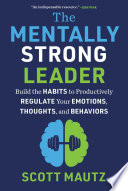

Leaders must develop emotional regulation to navigate challenges effectively. This involves recognizing their emotions and managing them in a way that positively influences their decision-making and interactions with others. Emotional regulation allows leaders to remain calm under pressure, fostering a stable environment for their teams. By practicing techniques such as mindfulness and self-reflection, leaders can enhance their emotional intelligence, leading to better communication and stronger relationships with their team members.
Continue readingResilience is a crucial trait for leaders, enabling them to bounce back from setbacks and maintain focus on their goals. The book emphasizes that resilient leaders not only recover from failures but also learn from them, using these experiences to inform future strategies. This adaptability is essential in an ever-changing business landscape. Leaders can cultivate resilience by embracing challenges, seeking feedback, and maintaining a growth mindset, which encourages continuous learning and improvement.
Continue readingSuccessful leaders have a clear vision and purpose that guides their actions and decisions. The book discusses how a strong sense of purpose can inspire teams, align efforts, and create a cohesive work environment. Leaders should articulate their vision clearly and consistently, ensuring that team members understand their roles in achieving it. By fostering a shared purpose, leaders can enhance motivation, engagement, and commitment among their teams, leading to improved performance and satisfaction.
Continue readingThe ability to make sound decisions under pressure is a vital skill for leaders. The book outlines strategies for effective decision-making, including gathering relevant information, considering multiple perspectives, and evaluating potential outcomes. Leaders are encouraged to trust their instincts while remaining open to feedback. By developing a systematic approach to decision-making, leaders can reduce anxiety and enhance their confidence, ultimately leading to better outcomes for their organizations.
Continue readingTrust and credibility are foundational elements of effective leadership. The book emphasizes the importance of transparency, integrity, and consistency in building trust with team members. Leaders should demonstrate their commitment to their values and principles, creating an environment where team members feel safe to express their ideas and concerns. By fostering open communication and actively listening to their teams, leaders can strengthen relationships and enhance collaboration, ultimately driving better results.
Continue readingEmpowerment is a key aspect of mentally strong leadership. The book highlights the importance of delegating responsibilities and providing team members with the autonomy to make decisions. By empowering others, leaders not only enhance team morale but also encourage innovation and creativity. Leaders should focus on developing their team members' skills and confidence, creating a culture of accountability and ownership. This approach not only boosts individual performance but also contributes to the overall success of the organization.
Continue readingThe landscape of leadership is constantly evolving, and leaders must commit to continuous learning and adaptation. The book encourages leaders to seek out new knowledge, embrace change, and remain open to new ideas. By fostering a culture of learning within their organizations, leaders can encourage innovation and adaptability among their teams. This commitment to growth not only enhances individual and team performance but also positions organizations for long-term success in a rapidly changing world.
Continue readingThe reading time for The Mentally Strong Leader depends on the reader's pace. However, this concise book summary covers the 7 key ideas from The Mentally Strong Leader, allowing you to quickly understand the main concepts, insights, and practical applications in around 23 min.
The Mentally Strong Leader is definitely worth reading. The book covers essential topics including Emotional Regulation, Resilience in Leadership, Vision and Purpose, providing practical insights and actionable advice. Whether you read the full book or our concise summary, The Mentally Strong Leader delivers valuable knowledge that can help you improve your understanding and apply these concepts in your personal or professional life.
The Mentally Strong Leader was written by Scott Mautz.
If you enjoyed The Mentally Strong Leader by Scott Mautz and want to explore similar topics or deepen your understanding, we highly recommend these related book summaries:
These books cover related themes, complementary concepts, and will help you build upon the knowledge gained from The Mentally Strong Leader. Each of these summaries provides concise insights that can further enhance your understanding and practical application of the ideas presented in The Mentally Strong Leader.